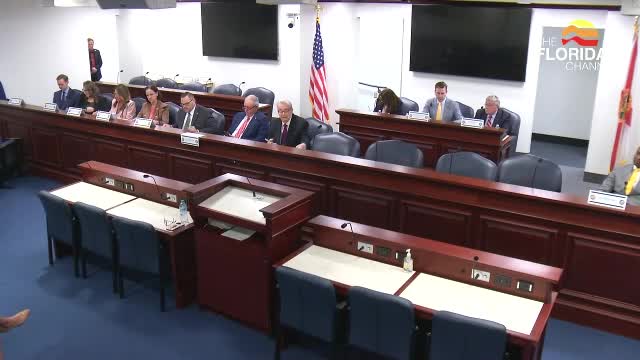Rep. Esposito outlines bill to add 8-year sunset, retrospective cost review to agency rules
Get AI-powered insights, summaries, and transcripts
Subscribe
Summary
Representative Anthony Esposito presented HB 305, a proposal to amend Chapter 120 that would require an eight-year sunset review of agency rules, add retrospective cost‑benefit analysis and require express legislative authority for rulemaking.
Representative Anthony Esposito, sponsor of House Bill 305, told the Joint Administrative Procedures Committee that the bill is “focused on strengthening oversight and rulemaking” and would return more rulemaking authority to the Legislature.
Esposito said HB 305 would require agencies to perform cost‑benefit analyses at the start of rulemaking and retrospectively to evaluate actual costs and benefits after implementation. “Not only requiring a cost benefit analysis at the front end of a rulemaking, but also retrospectively to see…what is that cost benefit analysis,” he said. The bill would also place an eight‑year sunset on rules, bringing them before the committee for a review and requiring express legislative authority for agencies to continue rulemaking.
The committee heard questions about implementation and examples of “unduly burdensome” rules. Esposito said he is collecting examples from stakeholders but that businesses have been reluctant to be publicly identified because they still must interact with agencies such as the Department of Environmental Protection and the Department of Education. He noted his background as a regional chamber of commerce executive and said small businesses often face additional administrative costs tied to regulation. “Time is money,” Esposito said.
Committee members pressed on practical details. Senator Gates asked why the bill uses an eight‑year sunset rather than a different interval; Esposito said he chose eight years to mirror legislative eight‑year term limits so each Legislature would have the opportunity to vote on rules. Other members asked how staggered reviews would avoid overloading agency rulemaking capacity, and whether the proposed retrospective cost reviews could slow rule adoption in cases where agencies are already delayed. Esposito acknowledged those concerns and welcomed further conversation about staggering and implementation.
Esposito said the bill’s pith is to reduce unnecessary regulatory burdens and save taxpayer and business dollars. He also told the committee he consulted outside partners, including the Cicero Institute, in developing the proposal.
